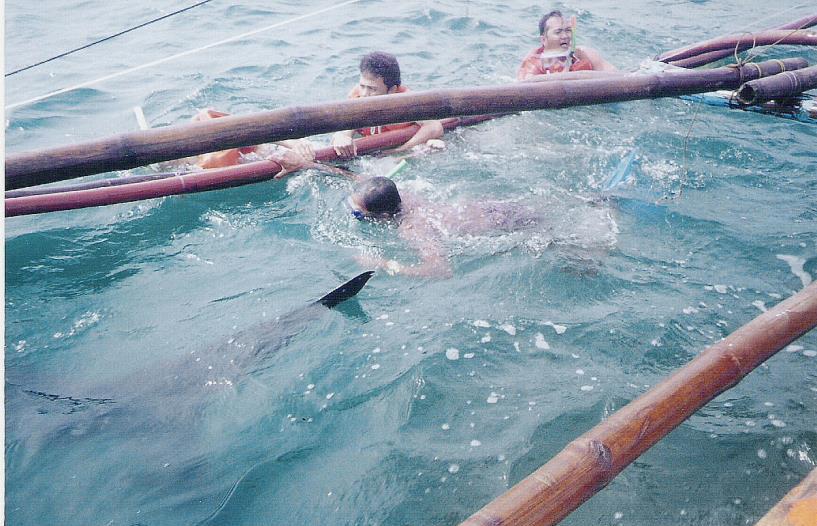Angela Quiros
This project will conserve whale sharks by improving tourism management.

This project aims to work successfully with communities in developing capacity to manage sustainable ecotourism. Donsol, a fishing village of 36,000 people in southern Luzon, Philippines is a popular destination for whale shark interactions. While the community of Donsol depends on primarily on fishing and agriculture for their livelihoods, nature conservation through ecotourism is one way to provide supplementary, sustainable livelihoods. Up to 40 and 60 whale sharks are documented each year, and whale shark tourism was initiated to protect whale sharks while benefiting the community. Donsol’s fishing community and municipal government have managed the industry since 1998.
To establish ecotourism best practices and promote sustainability in the management of whale shark tourism, the project will:
1) Develop a user-friendly tourist impact monitoring protocol for conservation managers to measure ecological, managerial, socioeconomic and experiential indicators for whale shark tourism. The protocol will observe human-whale shark interactions, and conduct interviews with tourists and local stakeholders.
2) Produce documentation of the monitoring program with a video, documenting our research, and a booklet on whale shark tourism impact monitoring.
3) Involve local stakeholders -- conservation managers, students, whale shark guides, boat operators, and Donsol’s Local Government Unit (LGU) – in a collaborative process to reduce tourism’s impact on the whale sharks and the local community.
The research project team will be comprise volunteers who will collect data on board whale shark interaction boats and while swimming with the sharks. Tourism Office staff will participate by coordinating the observers with whale shark tour boats, and BIOs (Butanding Interaction Officers), or whale shark guides will be involved in collecting data on whale shark biology, such as sex, length and local identification names.
Most visitors to Donsol interviewed in 2004 were not aware of the effects of their actions on whale sharks. This research project will provide ways to help both visitors and locals understand the complex interactions between humans and wildlife, and how human actions can be significant predictors of whale shark avoidance behaviour. The monitoring tool will be an important factor that strengthens ecotourism best practices in Donsol. The tool can easily be adapted for use at other whale shark tourism sites, and at other situations where humans interact directly with wildlife. Feedback from this monitoring protocol will provide data to empower local management in the Philippines to adjust programs to make them more sustainable.